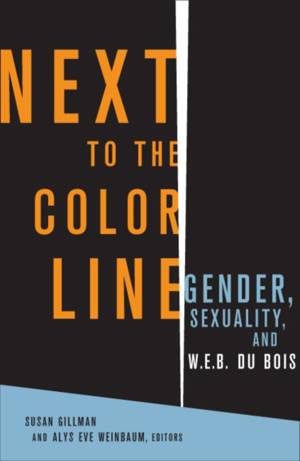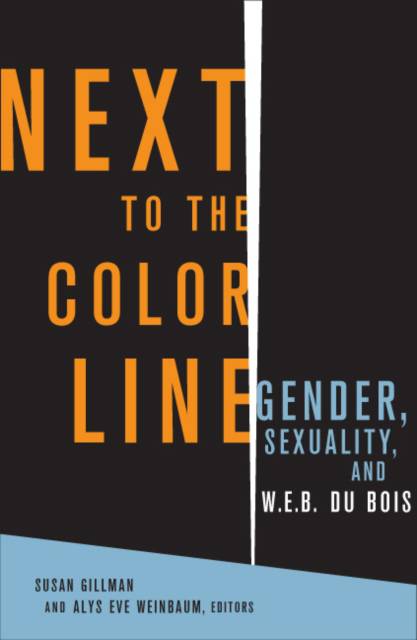
Je cadeautjes zeker op tijd in huis hebben voor de feestdagen? Kom langs in onze winkels en vind het perfecte geschenk!
- Afhalen na 1 uur in een winkel met voorraad
- Gratis thuislevering in België vanaf € 30
- Ruim aanbod met 7 miljoen producten
Je cadeautjes zeker op tijd in huis hebben voor de feestdagen? Kom langs in onze winkels en vind het perfecte geschenk!
- Afhalen na 1 uur in een winkel met voorraad
- Gratis thuislevering in België vanaf € 30
- Ruim aanbod met 7 miljoen producten
Zoeken
Next to the Color Line
Gender, Sexuality, and W. E. B. Du Bois
€ 44,45
+ 88 punten
Omschrijving
Although W. E. B. Du Bois did not often pursue the connections between the "Negro question" that defined so much of his intellectual life and the "woman question" that engaged writers and feminist activists around him, Next to the Color Line argues that within Du Bois's work is a politics of juxtaposition that connects race, gender, sexuality, and justice.This provocative collection investigates a set of political formulations and rhetorical strategies by which Du Bois approached, used, and repressed issues of gender and sexuality. The essays in Next to the Color Line propose a return to Du Bois, not only to reassess his politics but also to demonstrate his relevance for today's scholarly and political concerns.Contributors: Hazel V. Carby, Yale U; Vilashini Cooppan, U of California, Santa Cruz; Brent Hayes Edwards, Rutgers U; Michele Elam, Stanford U; Roderick A. Ferguson, U of Minnesota; Joy James, Williams College; Fred Moten, U of Southern California; Shawn Michelle Smith, St. Louis U; Mason Stokes, Skidmore College; Claudia Tate, Princeton U; Paul C. Taylor, Temple U.Susan Gillman is professor of literature at the University of California, Santa Cruz. Alys Eve Weinbaum is associate professor of English at the University of Washington, Seattle.
Specificaties
Betrokkenen
- Uitgeverij:
Inhoud
- Aantal bladzijden:
- 416
- Taal:
- Engels
- Reeks:
Eigenschappen
- Productcode (EAN):
- 9780816647231
- Verschijningsdatum:
- 8/03/2007
- Uitvoering:
- Paperback
- Formaat:
- Trade paperback (VS)
- Afmetingen:
- 149 mm x 229 mm
- Gewicht:
- 571 g

Alleen bij Standaard Boekhandel
+ 88 punten op je klantenkaart van Standaard Boekhandel
Beoordelingen
We publiceren alleen reviews die voldoen aan de voorwaarden voor reviews. Bekijk onze voorwaarden voor reviews.








